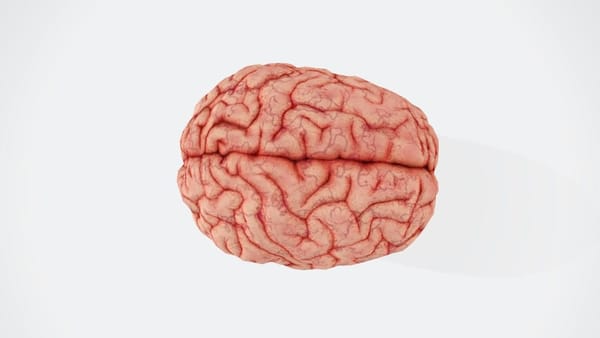In a surprising turn of events, the U.S. Food and Drug Administration (FDA) has decided not to approve MDMA-assisted therapy for post-traumatic stress disorder (PTSD) at this time. This decision comes as a setback for many who were hopeful about this innovative treatment approach. The FDA's decision highlights the complex nature of drug approval processes and the ongoing challenges in finding effective treatments for mental health conditions.
Key Takeaways:
- The FDA has delayed approval of MDMA-assisted therapy for PTSD.
- More research is needed to address safety concerns and prove effectiveness.
- This decision affects thousands of PTSD sufferers awaiting new treatment options.
- The drug company plans to conduct additional studies to meet FDA requirements.
- Despite the delay, there's still hope for MDMA therapy in the future.
Understanding MDMA and Its Potential in PTSD Treatment
MDMA, often known by its street name "Ecstasy," has been making waves in the medical community for its potential to treat post-traumatic stress disorder (PTSD). This condition affects millions of Americans, including veterans, survivors of abuse, and others who have experienced severe trauma. Traditional treatments don't always work, leaving many searching for new options.
MDMA works differently from typical antidepressants. When used in therapy sessions, it's thought to help patients confront traumatic memories more easily. The drug can create feelings of empathy and reduce fear, potentially making therapy more effective.
The FDA's Decision: A Closer Look
The Food and Drug Administration (FDA) recently announced that it won't approve MDMA-assisted therapy for PTSD just yet. This news came as a surprise to many, especially those who have been following the promising research in this area.
The FDA's main concerns revolve around the safety and effectiveness of the treatment. They want more information about how MDMA therapy compares to existing treatments and how it might affect different groups of people. The agency is also worried about the potential for misuse, given MDMA's history as a party drug.
Impact on Patients and the Medical Community
This decision has significant implications for PTSD sufferers. Many had pinned their hopes on MDMA therapy, especially those who haven't found relief with current treatments. The delay means these individuals will have to wait longer for access to this potential breakthrough therapy.
For the medical community, the FDA's decision underscores the rigorous standards required for drug approval. It also highlights the challenges in developing new treatments for complex mental health conditions like PTSD.
The Road Ahead: Additional Research and Studies
The company behind the MDMA therapy, MAPS Public Benefit Corporation, isn't giving up. They plan to conduct more studies to address the FDA's concerns. This includes a head-to-head comparison with existing PTSD treatments and more research on how MDMA therapy affects different populations.
These additional studies will take time and resources, but they're crucial for ensuring the treatment is safe and effective. The company remains optimistic that they can provide the necessary data to gain FDA approval in the future.
The Bigger Picture: Mental Health Treatment Innovation
The journey of MDMA therapy highlights a broader trend in mental health treatment – the exploration of unconventional approaches. As our understanding of the brain and mental health evolves, researchers are looking beyond traditional medications to find new solutions.
This includes not just MDMA, but other psychedelic substances like psilocybin (from magic mushrooms) and ketamine. These treatments often combine drug use with therapy sessions, aiming to create more profound and lasting changes in the brain.
Public Perception and Education
The potential use of MDMA in therapy raises interesting questions about public perception. Many people associate MDMA with illegal drug use and raves. Changing this perception and educating the public about its potential medical uses is a significant challenge.
If MDMA therapy eventually gains approval, it will be crucial to ensure that people understand the difference between medical use under professional supervision and recreational use. This education will be key to preventing misuse and ensuring the treatment is used safely and effectively.
The Role of Therapy in MDMA Treatment
It's important to note that the proposed MDMA treatment isn't just about taking a pill. The therapy component is crucial. Patients would take MDMA in a controlled setting with trained therapists guiding them through the experience. This combination of drug and therapy is what researchers believe makes the treatment potentially so effective.
Understanding this aspect is vital for the public. It's not about prescribing MDMA for home use but about creating a comprehensive treatment approach that includes professional support and guidance.
Balancing Hope and Caution
While the FDA's decision is disappointing for many, it's a reminder of the careful balance required in medical research. On one hand, there's an urgent need for new, effective treatments for conditions like PTSD. On the other hand, ensuring these treatments are safe and truly effective is paramount.
This situation calls for patience and continued support for research. It's natural to feel frustrated by delays, especially for those suffering from PTSD. However, the additional studies could lead to a stronger, safer treatment in the long run.
What This Means for the Future of Mental Health Treatment
The ongoing journey of MDMA therapy reflects broader trends in mental health treatment. There's a growing recognition that we need innovative approaches to tackle complex mental health issues. This includes not just new drugs but new ways of combining medications with therapy and other interventions.
As research continues, we may see more unconventional treatments making their way through the approval process. This could potentially lead to a wider range of options for people struggling with mental health conditions.
Conclusion: A Setback, But Not the End
The FDA's decision not to approve MDMA-assisted therapy for PTSD at this time is undoubtedly a setback. However, it's important to view this as a delay rather than a dead end. The additional research required could ultimately lead to a more robust and effective treatment.
For those affected by PTSD, it's a reminder to continue exploring all available treatment options while keeping an eye on future developments. For the medical community, it's a call to persist in innovative research while adhering to rigorous safety standards.
As we move forward, the story of MDMA therapy serves as a powerful example of the complex journey from promising research to approved treatment. It highlights the need for patience, thorough research, and ongoing dialogue between researchers, regulators, and the public.
While the road may be longer than initially hoped, the potential for new, effective treatments for PTSD and other mental health conditions remains a goal worth pursuing. The journey of MDMA therapy is far from over, and its story continues to unfold, offering both challenges and hope for the future of mental health treatment.
Sources:
[1] FDA Declines to Approve MDMA Therapy, and Seeks Further Study - The New York Times (nytimes.com)












Member discussion